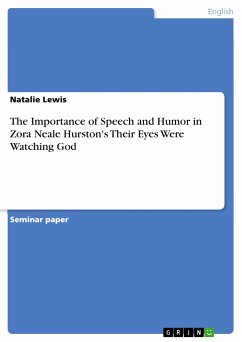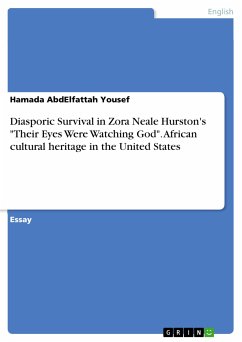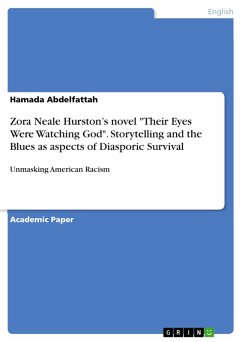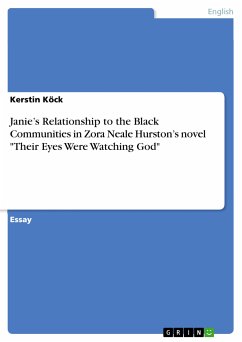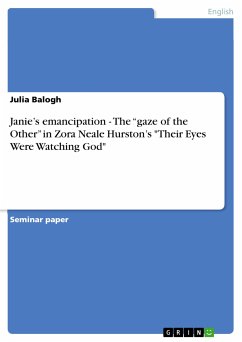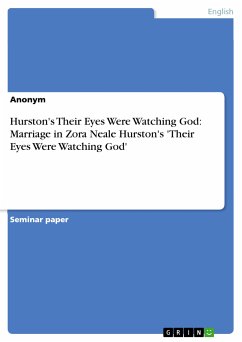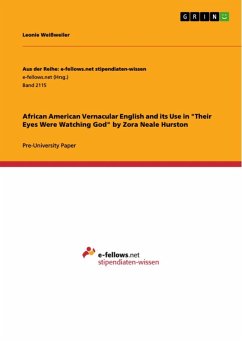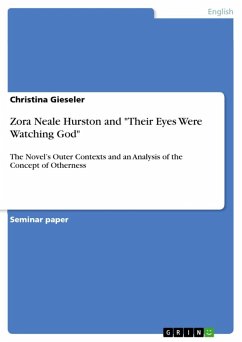Seminar paper from the year 2003 in the subject American Studies - Literature, grade: 1,0 (A), Free University of Berlin (JFK-Institute), course: Hauptseminar: Humor in Women's Literature, language: English, abstract: The Harlem Renaissance, an African American cultural movement of the 1920s and early 1930s, also refered to as New Negro Renaissance, marked the first time that black literature and arts were seriously recognized by American publishers, critics and intellectuals. Participants in the movement attempted to refute the negative racist stereotypes of black life deeply imbedded in white popular as well as high culture. In a time when many black middle class intellectuals shamefully distanced themselves from their cultural heritage, artists of the Harlem Renaissance showed a strong sense of racial pride in exploring the African and Southern roots of black experience and experimenting with elements of traditional African American folk culture in different genres. One of the most significant figures emerging from this literary period was the anthropologist and fiction writer Zora Neale Hurston. After her college education, she engaged in extensive anthropological field research on rural black tradition in her all-black hometown Eatonville in Florida as well as the Carribean region and published the collected tales, sermons, songs and jokes in f olklore collections, e.g. Mules and Men. As a novelist, she made use of her extensive knowledge of African American Southern rural dialect and oral culture by texualizing it in the dialogues of her fictional characters. Zora Neale Hurston was one of the first black writers to give an acurate depiction of African American humor. She demonstrated that humor is a crucial element of speech within the black community not only for establishing communal bonds through laughter but also because it plays an important role in the assertion of one's voice. Hurston's second and best-known novel Their Eyes Were Watching God focuses on the black woman's place in society. The protagonist and story-teller Janie presents her quest for self-fulfillment and struggle against ve rbal oppression, over two decades and three marital relationships; as she gains experience by experimenting with different roles, she learns how to assert her voice within the community and to humor life.
Dieser Download kann aus rechtlichen Gründen nur mit Rechnungsadresse in A, B, BG, CY, CZ, D, DK, EW, E, FIN, F, GR, HR, H, IRL, I, LT, L, LR, M, NL, PL, P, R, S, SLO, SK ausgeliefert werden.

